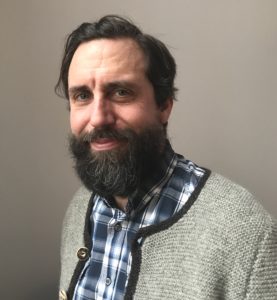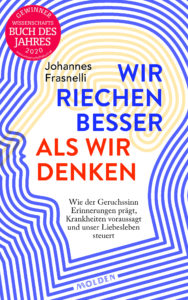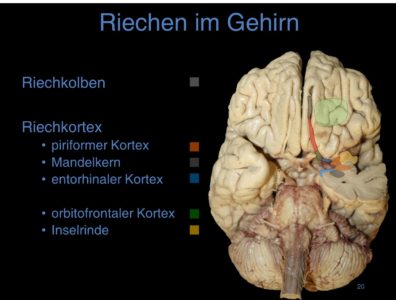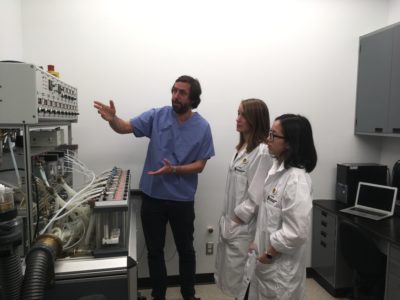Workshop XV, Johannes Frasnelli, 22 October 2020
Johannes Frasnelli is an odour perception specialist currently conducting research at the Université du Québec à Trois-Rivières’ Chemosensory Neuroanatomy Lab. His field of research is the three chemical senses: smell, taste and the trigeminal system. These three closely interacting senses are associated with the nose and mouth and dedicated to the detection and neural processing of chemicals in the environment. The chemical senses protect us and also play an important role in pleasure.
In order to illustrate the research of the Chemosensory Neuroanatomy Lab, Frasnelli presents the results of an investigation into Parkinson’s disease carried out by one of his students. This research sought to find out whether there is a specific profile for the disease, and whether olfactory malfunctioning could potentially be regarded as a distinctive marker for early Parkinson’s.
Frasnelli and his colleagues also offer olfactory training at the lab and gather data about the impact that this training has on people’s brains. They have found that people who do the training all have certain parts of their brain regions activated. Currently they are researching how many COVID-19 patients show olfactory disfunction and what long-term effect and therapies might exist.
Frasnelli then talks about the individual aspect of the experience of smell. Emotions play a big role here. However, the way we perceive smell is less individual, and we actually have no specific vocabulary for smells. Instead, we use object-related words to describe them: we say that something smells like such and such an object, for example.
The connection between taste and smell is part of a twofold process. Taste perception affects our olfactory perception. In addition, odour has a cultural aspect. Think of manure, for example. For people in the countryside, its smell means home, but for people in the city, it means feces. Our interactions with the world are multisensory. However, smell is often overlooked. We tend to remember what we see and hear, not what we smell.
odour perception I Université du Québec I pleasure I disease I brain I emotion I culture I multisensory




